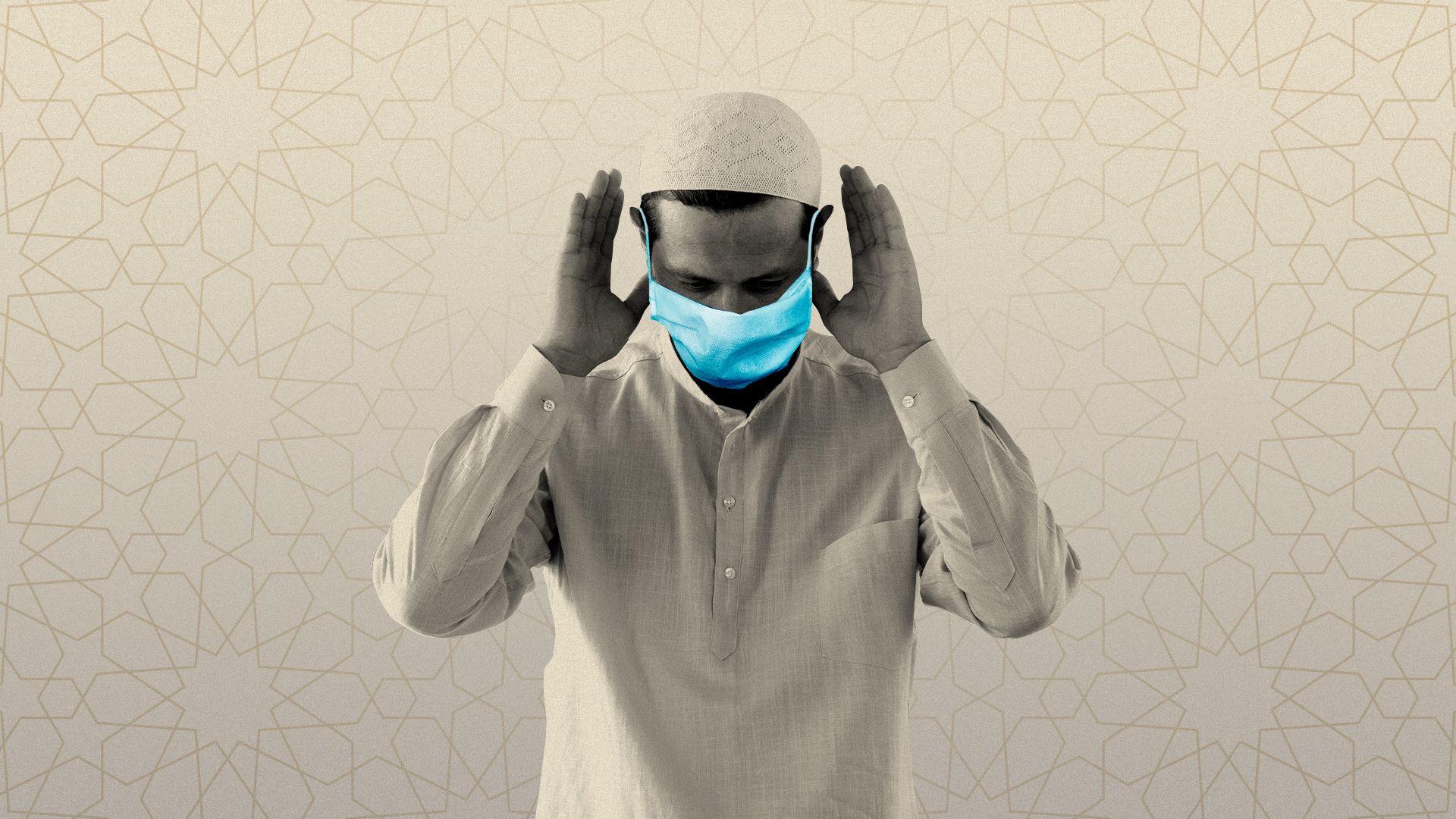Coronavirus upends Ramadan celebrations and traditions
Add Axios as your preferred source to
see more of our stories on Google.

Illustration: Aïda Amer/Axios
Nearly 1.8 billion Muslims around the world start their monthlong fast for Ramadan on Friday as the coronavirus continues to engulf the world and impede everyday life.
Why it matters: Long-standing traditions, such as gatherings with family and friends for iftar, the meal for breaking fast, and evening prayers, are set to be upended as people are forced to isolate.
- "This Ramadan is going to be flavorless," Abdul Rehman, a 19-year-old Egyptian, told the New York Times.
Context: Ramadan is a holy month of fasting when Muslims abstain from drinking or eating between sunrise and sundown.
- Muslims who are sick or have contracted the coronavirus are not required to fast.
The big picture: "All faiths have dealt with the challenge of keeping faith alive under the adverse conditions of war or diaspora or persecution — but never all faiths at the same time," Amy Sullivan, the strategy director for Vote Common Good, told Politico.
- "Religion in the time of quarantine will challenge conceptions of what it means to minister and to fellowship," she added.
To put things in perspective, imagine a Christmas without family, presents, decorations or Santa Claus. Muslims who cherish the social and religious traditions during the holy month are facing a similar reality.
"Anecdotally, I do not know of a single mosque in America that remains open for business right now. And the few that were kind of stragglers and delayed by a week or so — even they ended up getting on board."— Edward Ahmed Mitchell, the executive director of the Council of American-Islamic Relations, told Al Jazeera
Around the world: Saudi Arabia announced its residents will be able to pray only at home until the pandemic is over, including during the month of Ramadan. The Gulf nation often sets the tone for other Sunni-dominant countries.
- Jordan and Egypt both announced orders against public gatherings and prayers during Ramadan to try to curb the spread of the coronavirus, per Reuters.
- Iranian President Hassan Rouhani asked citizens to avoid gatherings, prayers and going to holy sites, the Washington Post notes.
- Indonesian President Joko Widodo announced Tuesday the ban of "mudik," a large exodus of people living in cities returning to their villages at the end of Ramadan, Al Jazeera reports.
- The Nigerian Supreme Council for Islamic Affairs is also urging people to participate in online lectures on religion during Ramadan to curb the spread of the virus.
Of note: For the thousands of Muslims trapped in civil wars, or who face oppression or struggle daily against poverty, this Ramadan won't be very different from others.
Go deeper: God and COVID-19
